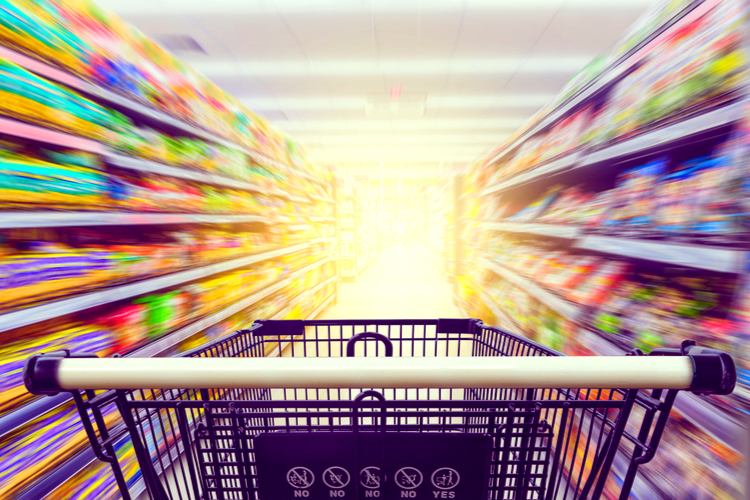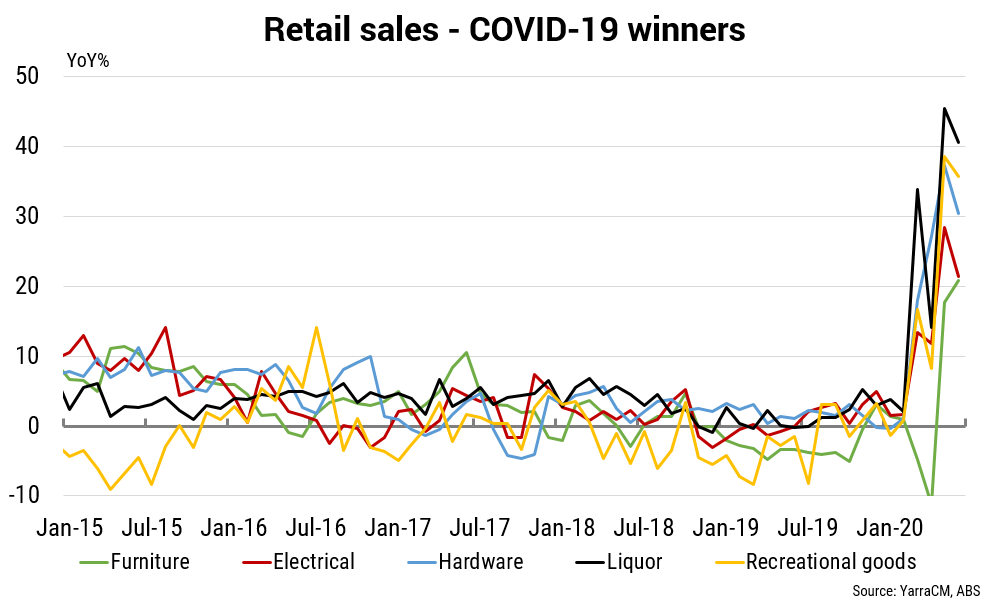
The Australian consumer was dormant for years heading into 2020, with muted growth blamed on low confidence and a lack of wage growth. Many posed the question: “What would it take to boost consumption?” In this note, Dion Hershan, Head of Australian Equities, looks at what’s changed.
The answer to how to boost consumption, as it turns out, was a pandemic. While COVID-19 has brought about a raft of surprises, mostly negative, the Australian consumer has been a positive one – actually spending more since the pandemic began. In the midst of a health crisis and with the economy on a precipice, retail sales grew $2bn in June compared to February [1].
Of course, it is the fiscal policy response to the crisis which has triggered the splurge. JobKeeper, JobSeeker, tax support, early redemptions from super (ERS) and loan relief have increased household cash flows by +6% ($19bn) year-on-year between March and July [2].
The hope from all this support was to avoid a sharp fall in spending – not to jolt awake the Australian consumer. After all, 22% of consumption categories (by value) were either shut down or dormant, including hospitality, surgeries and travel [2].
Consumers have instead turned to online shopping (a distinctive advantage in the current environment), where sales have surged +40%. Clear category winners in retail (in the four months to June) were [1]:
- Supermarket sales (+8%, or +$762mn)
- Liquor sales (+38%, or +$391mn)
- Furniture sales (+20%, or +$240mn)
- Electrical goods (+21%, or +$368mn)
- Hardware (+28%, or +$460mn)
- Sporting goods (+38%, or +$157mn)

It is clear the consumer ‘followed the cash flow’ and spent accordingly, with little regard to its source or sustainability. In fact, consumer confidence acted predictably with the index falling from 95.5 in February to a recession like reading of 79.5 in August [3], however consumer actions/expenditure clearly decoupled from confidence.
Just as COVID will eventually pass (you might say wishful thinking) so too will this consumption spike. By mid-2021 it will get harder as fiscal measures fade, ERS ends and loan deferral programs are withdrawn. A more cautious consumer is likely to emerge and the rising tide which has lifted most listed retailers (the sector is up +16% YTD, +70% from the March low) will become more selective.
We remain highly selective, focussing on owning the quality companies which are well positioned online, are in growing categories and have strong competitive positions, with prime examples in our portfolios being JB Hi-Fi (on a local scale) and Aristocrat (on a global scale).
